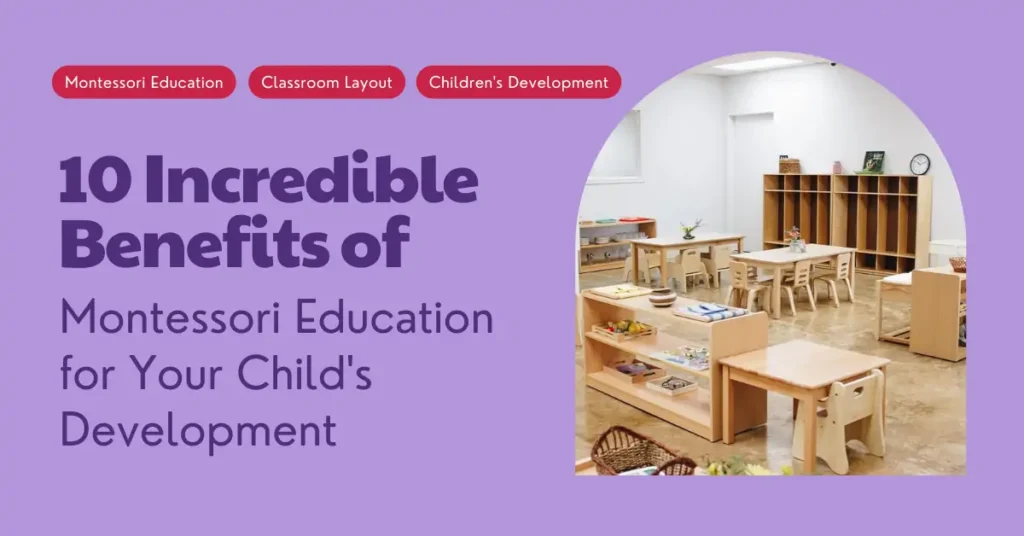Montessori education, a child-centered approach to learning, has been praised for its unique methods and the remarkable benefits it offers. Understanding these benefits can help parents make informed decisions about their child’s education and future. This article delves into the ten incredible advantages of Montessori education, highlighting how it supports holistic development and lifelong success. Are you worried about your child’s education and development? Many parents seek the best educational approach to ensure their children’s success. Montessori education might be the solution you’re looking for.
Montessori education offers a unique, child-centered approach that fosters independence, creativity, and critical thinking. The benefits of Montessori education include enhanced problem-solving abilities and self-discipline. In a Montessori classroom, children learn at their own pace, developing essential skills for lifelong success.
Are you curious about how Montessori can benefit your child? Let’s explore the incredible advantages this educational method offers.
What are the benefits of Montessori education?
- 1. Promotes Independence: Children can choose activities and work independently in Montessori classrooms. This fosters independence and helps children become self-motivated learners.
- 2. Enhances Social Skills: Montessori environments include mixed-age groups, encouraging older children to mentor younger ones. This interaction helps develop strong social skills and a sense of community.
- 3. Encourages Hands-On Learning: Montessori education emphasizes hands-on, experiential learning. Children use specially designed materials to explore concepts, which helps solidify their understanding through direct experience.
- 4. Fosters Creativity: Montessori classrooms allow children to explore their creativity. Children can express themselves and develop their creative abilities through art, music, or imaginative play.
- 5. Develop Critical Thinking: Children in Montessori programs are encouraged to think critically and solve problems independently. This approach nurtures their ability to analyze situations and make informed decisions.
- 6. Supports Emotional Development: Montessori education strongly emphasizes emotional intelligence. Children learn to recognize and manage their emotions, fostering healthy emotional development.
- 7. Provides a Love for Learning: Montessori’s child-centered approach nurtures a love for learning by allowing children to follow their interests. This intrinsic motivation often leads to a lifelong passion for discovery and knowledge.
- 8. Build Confidence: Children in Montessori classrooms are allowed to succeed through self-directed learning. This helps build their confidence as they see their progress and accomplishments.
- 9. Adapt to Individual Learning Styles: Montessori education is highly adaptable to learning styles and paces. This personalized approach ensures that each child’s unique needs are met, helping them thrive academically and personally.
- 10. Prepares for Future Success: Montessori education equips children with essential life skills such as self-discipline, adaptability, and time management. These skills are crucial for future academic and personal success.
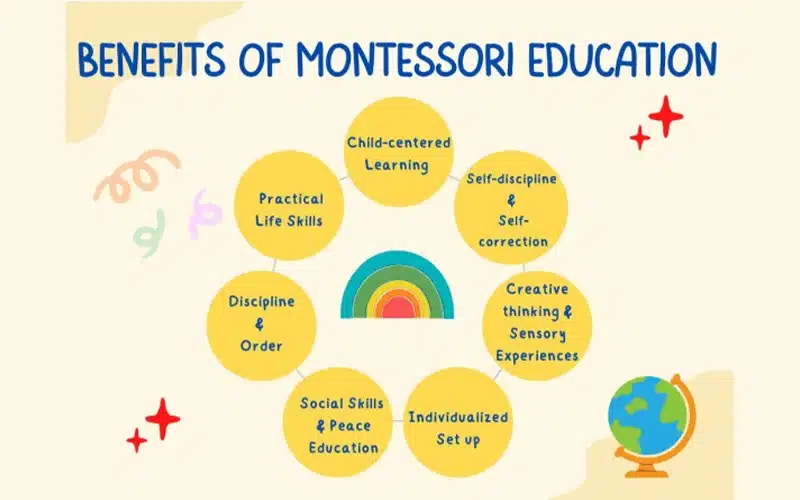
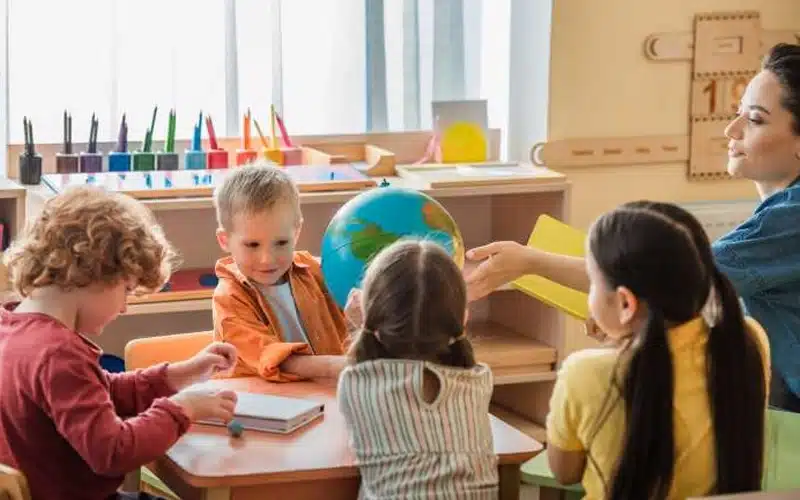
What Makes Montessori Education So Special?
Montessori education stands out due to its child-centered approach, which respects and nurtures each child’s unique developmental pace and learning style. Unlike traditional education systems that often follow a one-size-fits-all model, Montessori education allows children to explore subjects profoundly and at their speed. This individualized learning path enables children to fully understand concepts before moving on to new material, fostering a genuine love for learning.
The prepared environment in Montessori classrooms is meticulously designed to cater to the developmental needs of children of different ages. Each classroom is equipped with specific materials that encourage self-directed learning and discovery. This setup helps children develop critical thinking and problem-solving skills through hands-on experiences.
Another unique aspect of Montessori education is the role of the teacher. In Montessori classrooms, teachers act as guides rather than authoritative figures. They observe each child’s interests and facilitate their learning journey by providing appropriate resources and support. This guidance helps children build self-discipline and confidence while navigating their educational paths.
Mixed-age classrooms are another distinctive feature of Montessori education. These environments foster community and cooperation among children of different ages. Older children take on mentorship roles, helping younger peers and reinforcing their understanding. This collaborative learning environment promotes empathy, leadership, and social skills.
Montessori education also emphasizes practical life skills. Activities such as cooking, cleaning, and gardening are integrated into the curriculum, teaching children to care for themselves and their surroundings. These activities instill a sense of responsibility and independence, which are crucial for personal development.
What Are the Long-Term Benefits of Montessori Education?
Montessori education offers numerous long-term benefits that extend well beyond childhood. One of the most significant advantages is the development of strong academic skills. Research has shown that children attending Montessori schools often outperform their peers in standardized tests, particularly math and language. This is due to the Montessori method’s emphasis on deep understanding and mastery of concepts.
In addition to academic excellence, Montessori education fosters essential life skills such as critical thinking, problem-solving, and adaptability. These skills are invaluable in higher education and the workforce, where individuals are often required to navigate complex challenges and think creatively.
Montessori-educated individuals tend to exhibit a high level of emotional intelligence. The emphasis on social-emotional learning in Montessori classrooms helps children develop empathy, self-regulation, and practical communication skills. These traits are essential for building strong personal and professional relationships throughout life.
Another long-term benefit of Montessori education is the cultivation of lifelong learning habits. Montessori students are encouraged to follow their interests and take ownership of their learning. This intrinsic motivation and curiosity often persist into adulthood, driving continuous personal and professional growth.
Moreover, Montessori education promotes resilience and adaptability. Children learn to approach challenges with a problem-solving mindset and are taught to view mistakes as opportunities for growth. This resilience is crucial for navigating the uncertainties and pressures of adult life.
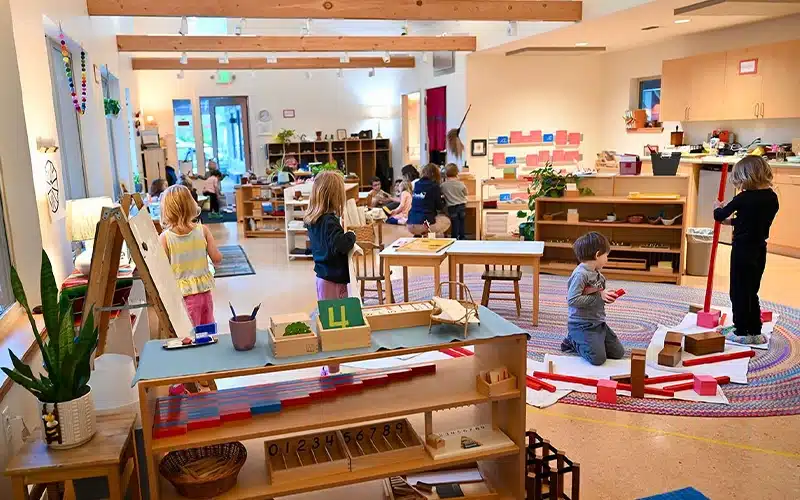
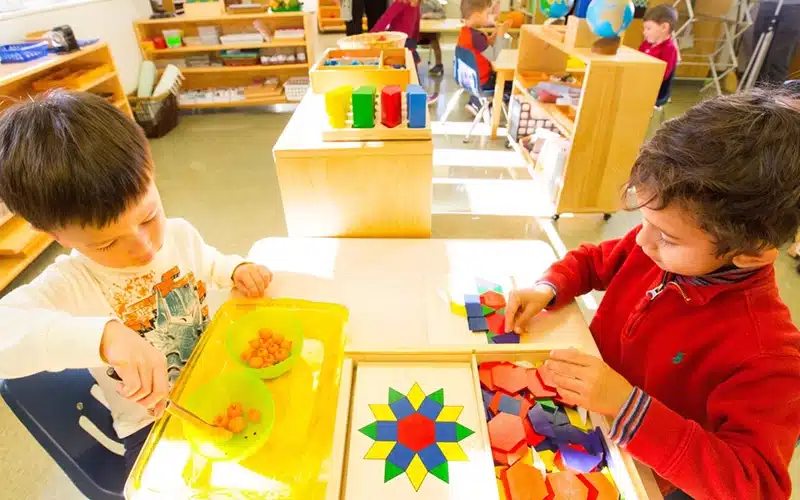
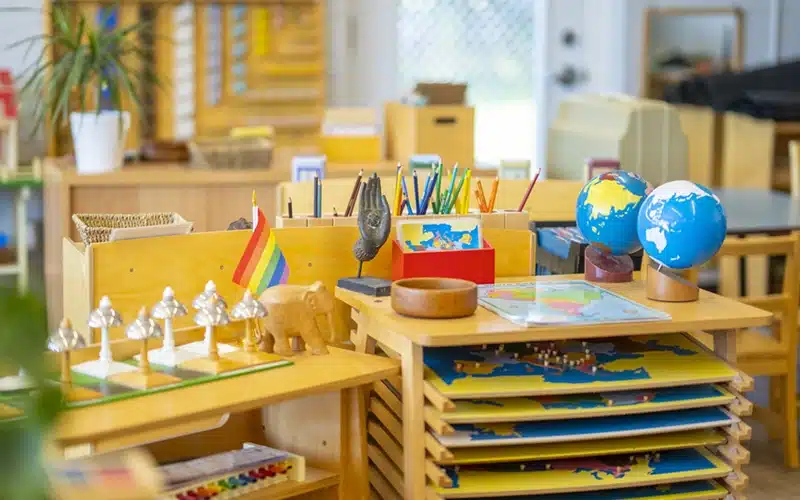
How Does the Montessori Environment Differ from Traditional Classrooms?
The Montessori environment stands out from traditional classrooms in many ways, particularly regarding the furniture and layout. These differences highlight the unique benefits of Montessori education and contribute to a more effective learning experience for children.
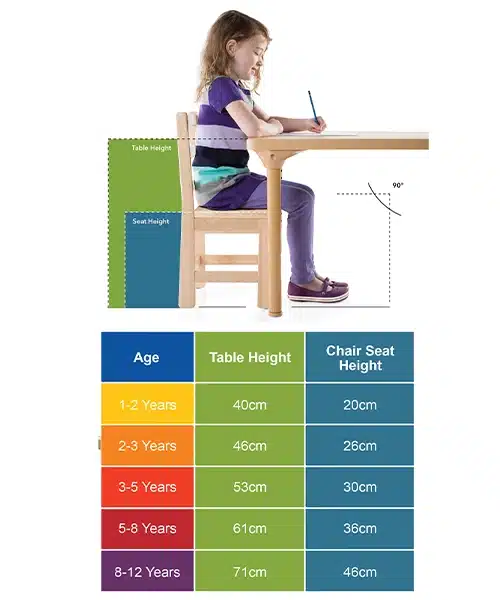
Child-Sized Furniture
One of the most noticeable aspects of a Montessori classroom is the use of child-sized furniture. Tables, chairs, and shelves are designed to be at the child’s height, making everything accessible and easy to use. This furniture promotes independence as children can move and arrange their workspace without adult assistance.
Montessori education’s benefits are evident in how children interact with their environment. Child-sized furniture helps develop their sense of autonomy and responsibility, allowing them to take charge of their learning.
Flexible Seating Arrangements
Montessori classrooms often feature flexible seating arrangements rather than fixed desks. Children can choose where to sit or work at a table, on the floor, or in a cozy reading nook. This flexibility caters to different learning styles and preferences, making the classroom more comfortable and conducive to learning.
The benefits of Montessori education include creating a learning environment that adapts to the needs of each child. Flexible seating allows children to find the best spot for their work, promoting concentration and engagement.
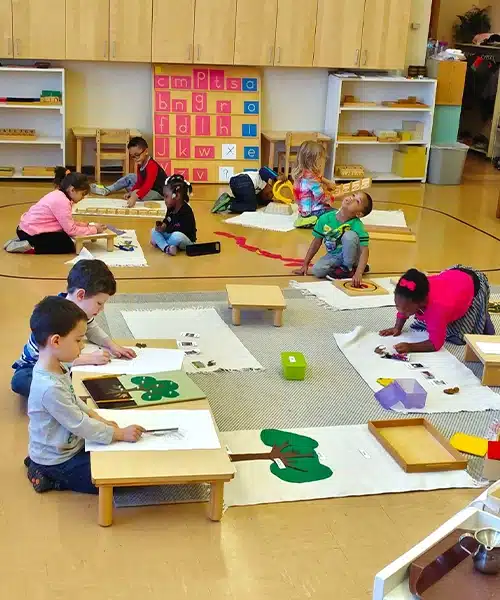
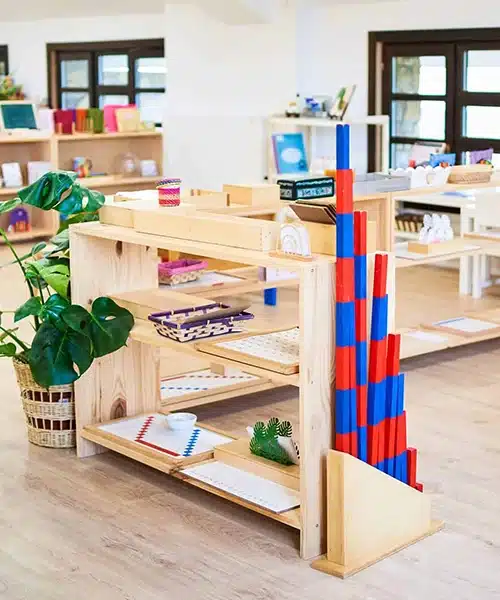
Open Shelving and Accessible Materials
In Montessori classrooms, materials and supplies are stored on open shelves within easy reach of the children. This setup encourages children to independently select and return materials, fostering a sense of order and responsibility.
One of the critical benefits of Montessori education is the emphasis on self-directed learning. Open shelving makes it easy for children to choose activities and manage their materials, promoting independence and organizational skills.
Natural and Aesthetic Design
Montessori classrooms often incorporate natural materials and a pleasing aesthetic design. Wooden furniture, plants, and natural light are standard features that create a warm and inviting atmosphere. This environment helps children feel calm and focused, enhancing their ability to learn and explore.
The benefits of Montessori education extend to creating a peaceful and inspiring learning space. Natural and aesthetically pleasing environments contribute to children’s emotional well-being and their ability to concentrate.
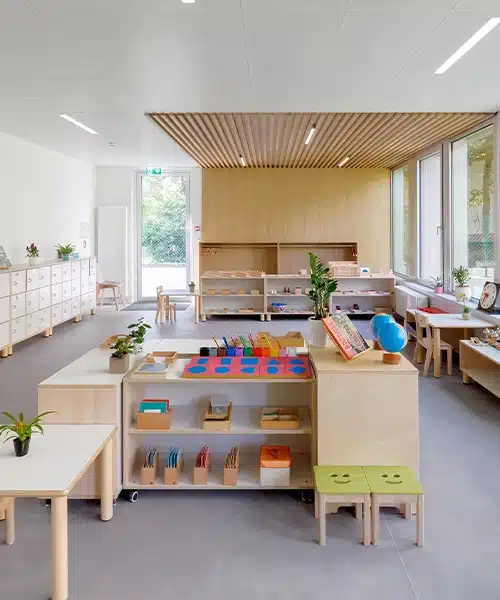
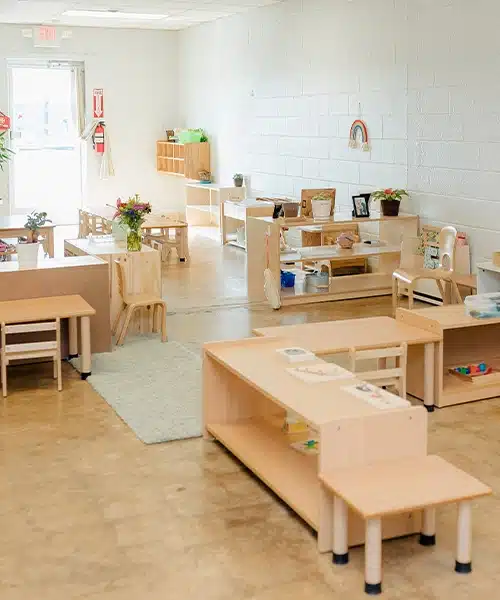
Multi-Functional Furniture
Furniture in Montessori classrooms is often multi-functional. For example, furniture might serve as a workspace, storage, and play area. This efficient use of space supports the varied activities that children engage in throughout the day.
The benefits of Montessori education include teaching children to use resources effectively. Multi-functional furniture encourages children to think creatively about how they use their space and materials, fostering problem-solving skills and adaptability.
Movable Furniture
Many pieces of furniture in a Montessori classroom are designed to be easily movable by children. Lightweight tables and chairs can be rearranged for different activities and group sizes. This mobility empowers children to take an active role in organizing their learning environment.
Montessori education’s benefits are evident in how children interact with their surroundings. Movable furniture allows children to adapt their space to meet their needs, promoting a sense of ownership and flexibility.
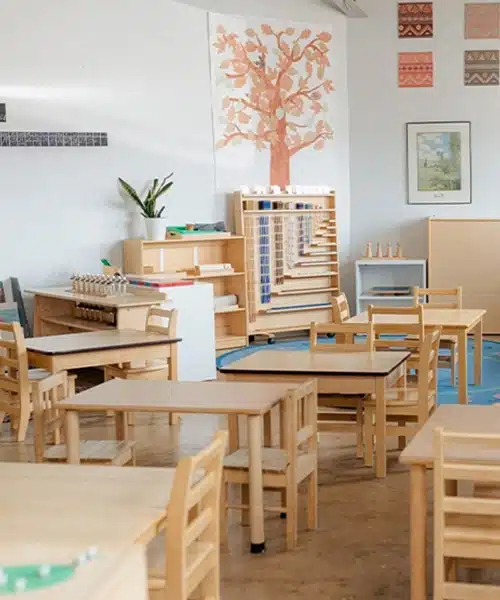
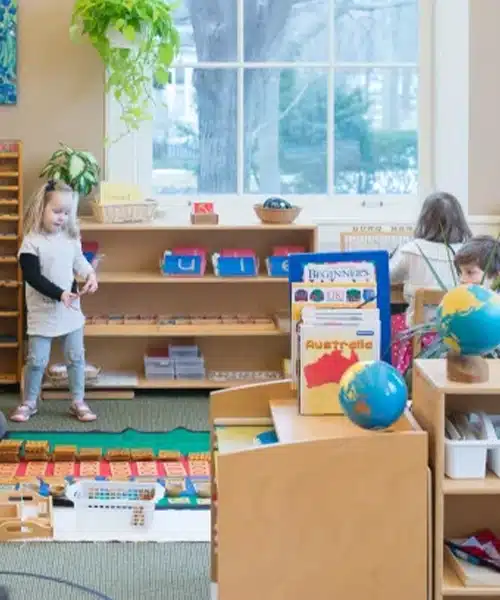
Low Shelves and Workspaces
Low shelves and workspaces in Montessori classrooms are designed to be within easy reach of young children. This design encourages children to independently access materials and activities, supporting their autonomy and decision-making skills.
The benefits of Montessori education include fostering independence and confidence in children. Low shelves and accessible workspaces make it easy for children to manage their learning activities, building self-reliance and initiative.
Ergonomic Design
Furniture in Montessori classrooms is often ergonomically designed to support children’s physical development. Chairs and tables are selected to promote good posture and comfort, essential for sustained focus and engagement in learning activities.
The benefits of Montessori education extend to supporting children’s physical health and development. Ergonomically designed furniture helps children maintain proper posture and reduces fatigue, enhancing their ability to concentrate and learn effectively.
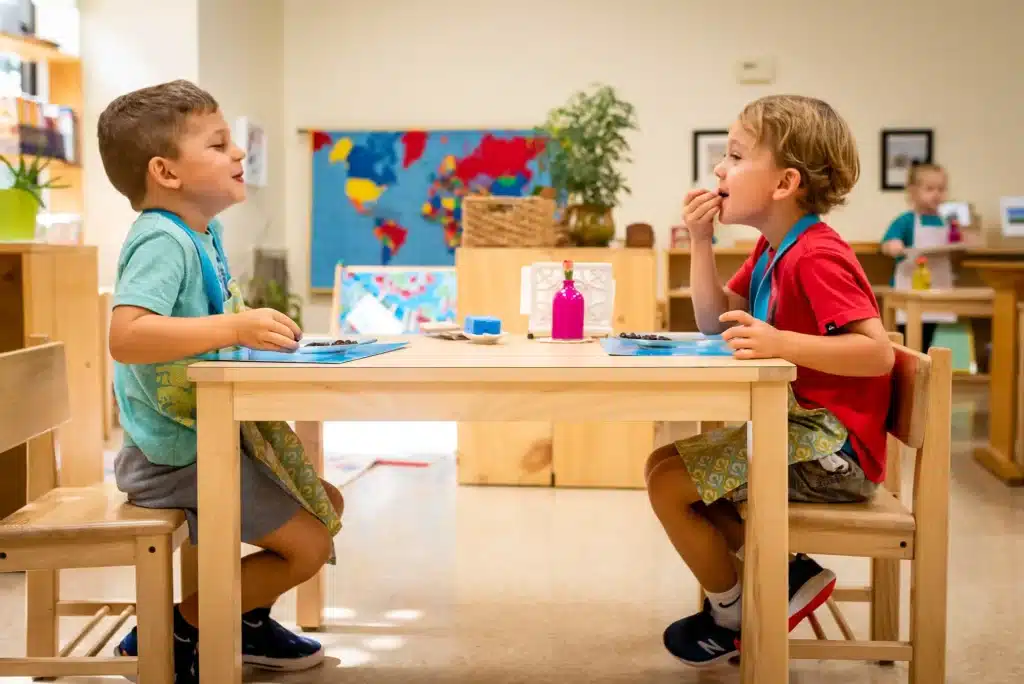
The furniture and layout of Montessori classrooms play a crucial role in delivering the benefits of Montessori education. Child-sized, flexible, and accessible furniture creates an environment that fosters independence, creativity, and a love of learning. These elements make Montessori classrooms uniquely effective in supporting children’s holistic development and preparing them for future success.
Is Montessori Education Suitable for All Children?
Montessori education is known for its adaptability and inclusiveness, making it suitable for many children. The child-centered approach of Montessori education can benefit children with diverse learning styles and needs. The individualized learning plans allow each child to progress at their own pace, accommodating advanced learners and those needing more time to grasp certain concepts.
However, it’s essential to recognize that Montessori education might not fit every child perfectly. Some children may thrive better in environments with more structured, teacher-led instruction. Parents must understand their child’s unique needs and learning preferences when considering Montessori education.
Montessori education can particularly benefit children who enjoy hands-on learning and exploration. The emphasis on practical life skills, sensory-based activities, and self-directed learning can be very engaging for these children. Additionally, the Montessori method’s focus on social-emotional development can be helpful for children who need support in building social skills and emotional regulation.
Parents should also consider the quality of the Montessori program when evaluating its suitability for their child. Authentic Montessori schools with well-trained teachers and properly equipped classrooms are more likely to provide the full benefits of Montessori education. Visiting schools, observing classrooms, and talking to educators can provide valuable insights into whether a specific Montessori program is a good fit for a child.
Furthermore, Montessori education requires a level of parental involvement and support. Parents who choose Montessori education should be prepared to engage with the school’s philosophy and practices, supporting their child’s learning at home and maintaining open communication with teachers.

Montessori education offers numerous benefits that can significantly enhance your child’s development. From fostering independence to encouraging a lifelong love of learning, this approach provides a holistic and individualized educational experience. Montessori education might be the perfect fit if you’re looking for a method that respects your child’s individuality and promotes comprehensive development.

